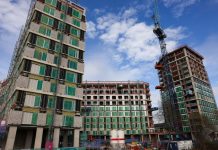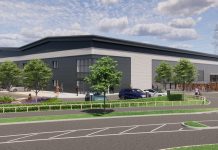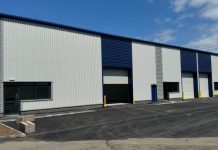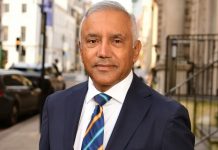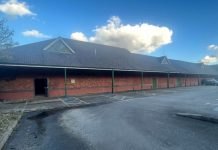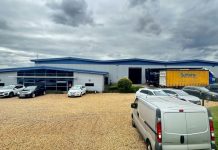The ‘Eastern Bloc’ of the ‘Midlands Powerhouse’ needs to mobilize quickly or fear being left behind in the race for devolved prominence and power, says Stephen Salloway, Managing Director of Salloway Property Consultants.
The West Midlands Combined Authority (WMCA) recently announced their proposal to create West Midlands devolved alliance – likely under the stewardship of an elected Mayor. The proposal came in answer to Chancellor George Osbourne’s post-election announce that the ‘Midlands Powerhouse’ should be aiming to add £34 billion to its economy.
Despite the Chancellor strategically making his announcement at Derby’s Garrendale Group – and highlighting the strength of the Midlands as a whole – it appears the traditional divide between East and West Midlands cannot be bridged. They want to go off and do their own thing.
Thats all good and well but with Greater Manchester and the North East seeming forming their own cohesive strategies, and now the West Midlands centred around Birmingham setting their own agenda – we are in competition with some serious clout. I fear we in Derby, and the East Midlands generally, are at risk of being on the slow train to devolution.
The clarity offered by a majority government has given new pace and expanded thought to the process and scale of devolution. It is clear that local politicians need to collaborate in ways rarely seen before in order to create economically fertile regions capable of attracting international investment. So whats now potentially on the table for Derby?
A study published last year showed Derby as a top 10 city for the number of private sectors jobs it has created in the past decade. The fact is that Derby has not got where it is today through adopting a steady as you go approach. It’s pushed the boundaries, both politically and economically.
Over recent years Derby has proven its economic resilience and ingenuity. Real estate projects like those delivered with the help of the Derby City Council backed Regeneration Fund, completion of the Inner Ring Road and infrastructure to facilitate the new Infinity Park, welcome as they are, have not been easy wins. But this is no time to bask in the sun; it is time to push on. To compete we will need to look beyond our existing structures, even examining what constitutes ‘our’ economy.
The Chancellor has said his “biggest priority is skills and people”, to tackle an opportunities shortage and bridge the ‘skills gap’. A chief part of his strategy is to devolving powers for highways/transport, skills (including back to work schemes), health and social care. It seems to me there is real mileage in doing this.
I understand that Derbyshire’s authorities are discussing working together to deliver a devolved agenda. However, for the true potential of this region to be realized, particularly if we are up against the West Midlands, I think the East Midlands needs a more cohesive approach to winning inward investment and indeed delivering devolved budgets effectively.
It seems to me that the D2N2 Local Economic Partnership is the best starting place for agreeing the geographical boundaries of a devolved area. A few years ago it was agreed that D2N2 was the best way of delivering economic growth within the region. Why not make a very bold and decisive step and harness the area as a whole under an elected Metro Mayor?
I acknowledge there will be staunch opposition in some quarters at the thought of getting into bed with our noisy neighbours over the M1 motorway but lets put it into context, but this is no time for city colours nimbyism.
Derby’s strengths in advanced engineering and manufacturing should be married with Nottingham’s finance and administrative capacities. Linking Derby and Nottingham together, as a cohesive economic proposition would have many benefits, encouraging decision makers and wealth generators to be drawn here. I think if we don’t look to move forward with a proposal of this magnitude, the acknowledgement of how important Derby and the region is to UK Plc may be lost.
A regional focus on improving infrastructure, deepening transport and development links between the two cities is undoubtedly the greatest way of improving capacity of skills and economic activity in the locality. An example would be the HS2 project and the obvious benefits of a joined up approach across the region would have on the siting, infrastructure to, and development around, the proposed East Midlands Hub. For instance, why shouldn’t we be thinking about extending the Nottingham’s existing tram system from Toton to Derby and Infinity Business Park forming a cohesive light rail transport system for the region?
Derbyshire Councils, as enablers, should continue to explore innovate ways of enabling business to thrive but it must be accepted that this might be as a smaller cog in a bigger regional wheel. In my experience if you build infrastructure, you build business. The role of the public sector’s limited funds is to encourage as much private sector investment as possible. In an era of limited public resource why not deshackle more of these funds through a regional ‘can do’ administration, with sizable clout and decisive stewardship? When you look at what has been achieved previously with the Derby Regeneration Fund and Derby Enterprise Growth Fund it is clear we could achieve more if we had greater control over budgets.
In my view, devolution will be critical to delivering conditions for real estate growth, projects with local emphasis, and providing a supporting network for the private sector to succeed. The Eastern Bloc needs to rise and in my view Derby can not do it alone.

